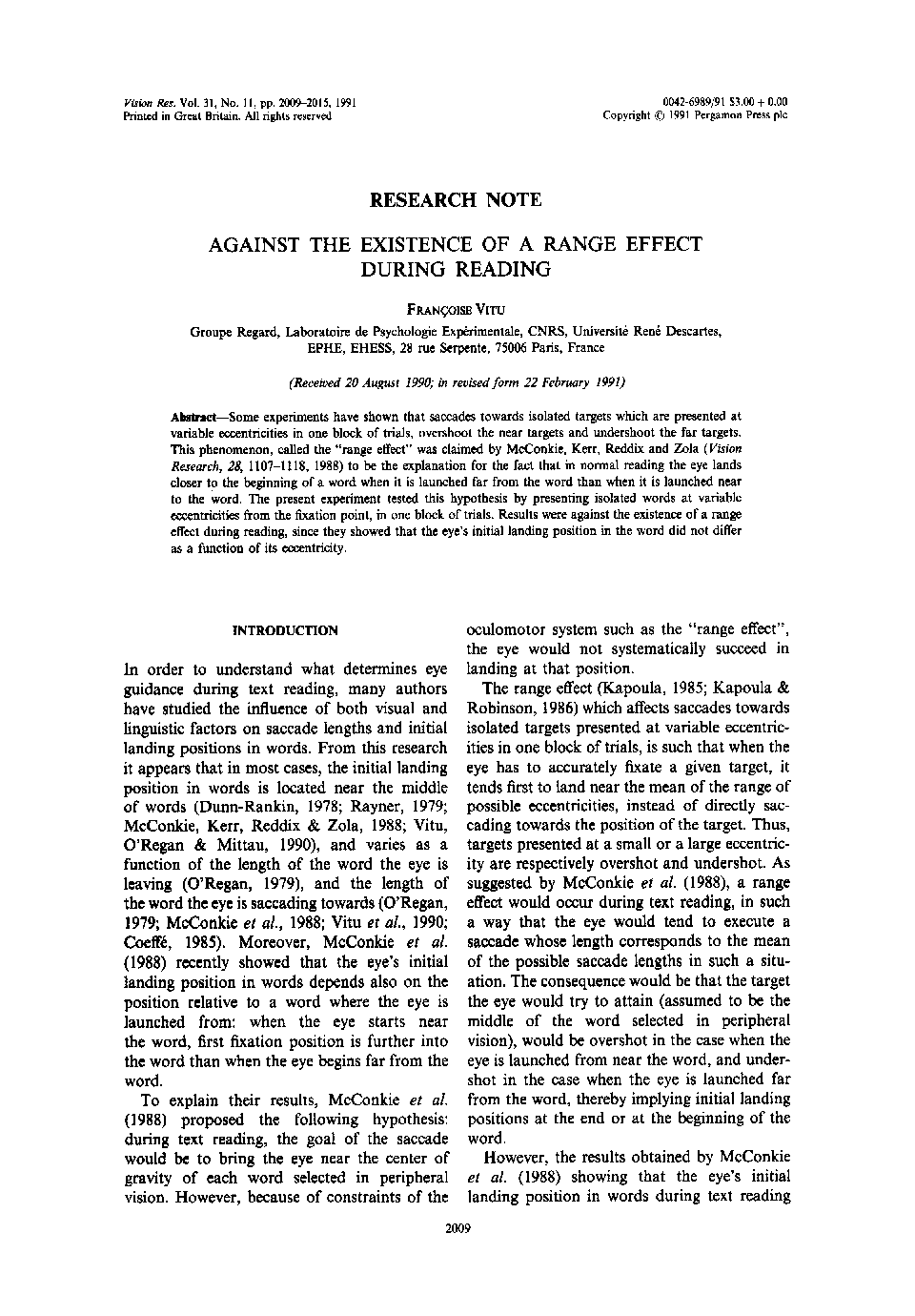| Article ID | Journal | Published Year | Pages | File Type |
|---|---|---|---|---|
| 4038795 | Vision Research | 2015 | 7 Pages |
Abstract
Some experiments have shown that saccades towards isolated targets which are presented at variable eccentricities in one block of trials, overshoot the near targets and undershoot the far targets. This phenomenon, called the “range effect” was claimed by McConkie, Kerr, Reddix and Zola (Vision Research, 28, 1107-1118, 1988) to be the explanation for the fact that in normal reading the eye lands closer to the beginning of a word when it is launched far from the word than when it is launched near to the word. The present experiment tested this hypothesis by presenting isolated words at variable eccentricities from the fixation point, in one block of trials. Results were against the existence of a range effect during reading, since they showed that the eye's initial landing position in the word did not differ as a function of its eccentricity.
Related Topics
Life Sciences
Neuroscience
Sensory Systems
Authors
Françoise Vitu,
